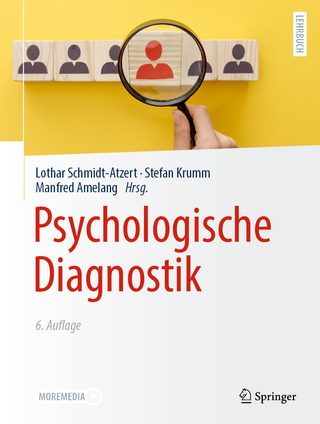
Evaluating Research in Academic Journals
Routledge (Verlag)
978-1-138-28730-3 (ISBN)
- Titel ist leider vergriffen;
keine Neuauflage - Artikel merken
• Your students will learn the practical aspects of evaluating research, not just how to apply a laundry list of technical terms from their textbooks.
• Each chapter is organized around evaluation questions. For each question, there is a concise explanation of how to apply it in the evaluation of research reports.
• Numerous examples from journals in the social and behavioral sciences illustrate the application of the evaluation questions. Students see actual examples of strong and weak features of published reports.
• Commonsense models for evaluation combined with a lack of jargon make it possible for students to start evaluating research articles the first week of class.
• The structure of this book enables students to work with confidence while evaluating articles for homework.
• Avoids oversimplification in the evaluation process by describing the nuances that may make an article publishable even though it has serious methodological flaws. Students learn when and why certain types of flaws may be tolerated. They learn why evaluation should not be performed mechanically.
• This book received very high student evaluations when field-tested with students just beginning their study of research methods.
• Contains more than 60 new examples from recently published research. In addition, minor changes have been made throughout for consistency with the latest edition of the Publication Manual of the American Psychological Association.
Chapters
1. Background for Evaluating Research Reports
2. Evaluating Titles
3. Evaluating Abstracts
4. Evaluating Introductions and Literature Reviews
5. A Closer Look at Evaluating Literature Reviews
6. Evaluating Samples When Researchers Generalize
7. Evaluating Samples When Researchers Do Not Generalize
8. Evaluating Instrumentation
9. Evaluating Experimental Procedures
10. Evaluating Analysis and Results Sections: Quantitative Research
11. Evaluating Analysis and Results Sections: Qualitative Research
12. Evaluating Discussion Sections
13. Putting It All Together
Appendix A: Quantitative and Qualitative Research: An Overview
Appendix B: Examining the Validity Structure of Qualitative Research
Appendix C: The Limitations of Significance Testing
Appendix D: Checklist of Evaluation Questions
Professor Reviews
“Wonderful tool—particularly for first-year graduate students who have had little exposure to literature relevant to their discipline.”
— Eric Frauman, Middle Tennessee State University
“This book assists my students to better evaluate what they read for their own literature reviews as well as assisting them to write better empirical reports the next semester. I highly recommend this book for introductory social research methods and statistics courses.”
— Suzan Waller, University of Central Oklahoma
“Excellent! Most thorough and understandable treatment of the topics I’ve ever seen. This is a terrific practical guide. I can’t imagine teaching the senior honors thesis course without it.”
— Eva Garroutte, Boston College
“In learning to penetrate academic ‘jargon,’ the last thing students need is more of it. As clear as it is concise, this book is an exceptional effort in every way and a welcome supplement to my research methods class.”
— Alfred P. Kielwasser, San Francisco State University
“I use it for senior research project. The checklist (Appendix) of evaluation questions not only helps [students] critique existing research but helps them to write their own.”
— Chris Ahlman, Lewis-Clark State College
“I have used this book for several years and find that it becomes an excellent resource for teaching students how to evaluate titles, abstracts, introductions, and literature reviews. After reading this text, my students write a literature review.”
— Priscilla Reinertsey, University of New Hampshire
“Students find it very clear and readily use it to evaluate journal articles. The checklist is an excellent resource for students. As a teacher, I find the text well organized and easy to integrate into my writing/research course.”
— Regena G. Stevens-Ratchford, Towson University
“This is a really concise manual for evaluating research. Extremely helpful as a teaching tool.”
— Faith Troupe, Valdosta State University
“Very helpful, accessible resource for first-year doctoral students. Lays a good foundation for subsequent methods courses and independent research.”
— Catherine Brighton, University of Virginia, Charlottesville
| Erscheinungsdatum | 10.05.2021 |
|---|---|
| Verlagsort | London |
| Sprache | englisch |
| Maße | 210 x 280 mm |
| Themenwelt | Geisteswissenschaften ► Psychologie |
| ISBN-10 | 1-138-28730-X / 113828730X |
| ISBN-13 | 978-1-138-28730-3 / 9781138287303 |
| Zustand | Neuware |
| Haben Sie eine Frage zum Produkt? |
aus dem Bereich


